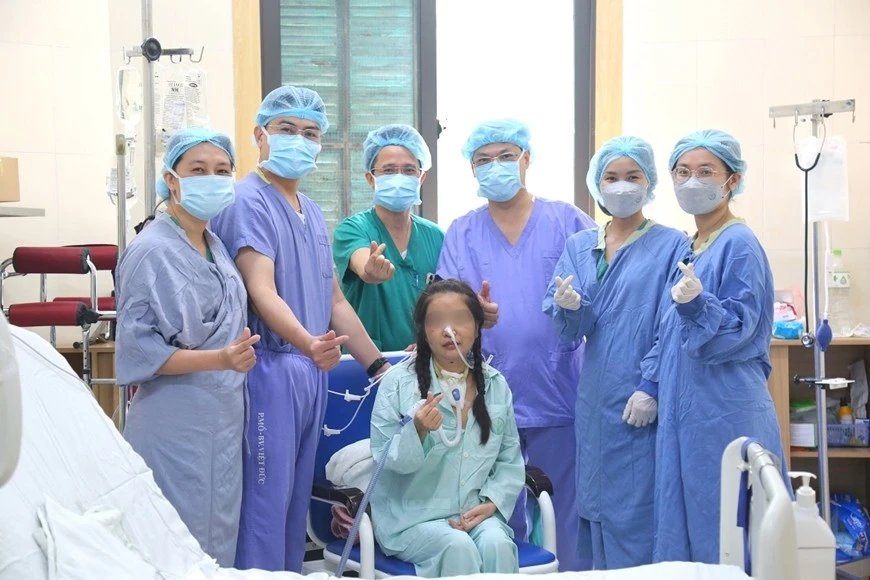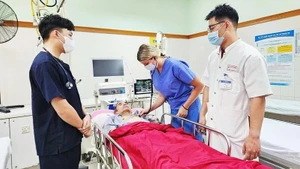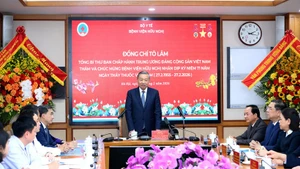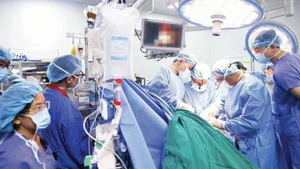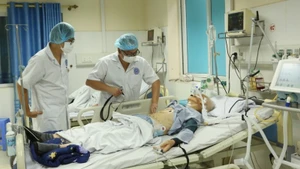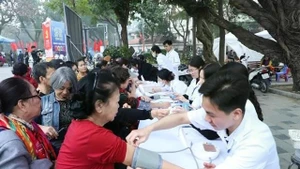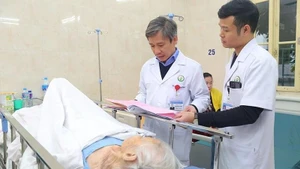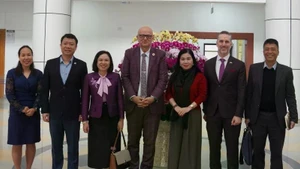Viet Nam’s achievements in organ transplantation have earned global recognition, placing the country among the few nations capable of performing the most complex multi-organ transplants in the world.
In mid-August, Viet Duc University Hospital announced that its doctors successfully performed Viet Nam’s first-ever combined heart–lung transplant, marking a major step forward for the country’s medical field.
“With this success, we have proudly raised Viet Nam’s red flag on the world’s map of multi-organ transplantation,” said the hospital's Director Professor Duong Duc Hung.
This represents a breakthrough in Viet Nam’s medical capacity and opens new hope for patients with end-stage organ failure, he said.
The 38-year-old patient, Tran Nhu Q., was critically ill before surgery, with only days to live. She suffered from Eisenmenger syndrome, severe right heart failure, and serious tricuspid valve leakage. The donated organs also posed challenges. The lungs were infected with drug-resistant bacteria and were larger than the recipient’s chest cavity. Despite the odds, the medical team decided to operate, knowing that without surgery, there was no chance of survival.
Associate Professor Pham Huu Lu, Deputy Head of the Department of Cardiovascular and Thoracic Surgery, explained that the team used extracorporeal circulation to temporarily replace both the heart and lungs during the surgery, which lasted seven hours.
“We had to ensure the heart functioned well while preventing fluid overload that could cause pulmonary oedema,” he said. “We minimised anaesthesia and used advanced hemodynamic monitoring systems.”
To fit the new lungs into the chest cavity, surgeons carefully reduced their size and adjusted the connection technique, switching from the trachea to the two main bronchi, to improve blood circulation. Every step required absolute precision, with bronchoscopic checks conducted during surgery to inspect each connection.
Viet Nam started organ transplantation much later than other countries, but has made remarkable progress over the past three decades.
The nation’s first kidney transplant was carried out in 1992 at the 103 Military Hospital, marking the beginning of its transplant journey. Early operations mainly involved kidney and liver transplants from living donors due to limited legal and community support for organ donation after brain death.
A turning point came in 2010, when Vietnamese doctors performed the first heart transplant from a brain-dead donor, a landmark achievement in the country’s medical history.
By 2020, Viet Nam recorded two world-class medical milestones, the first limb transplant in Southeast Asia and the world’s first limb transplant from a living donor, conducted at the 108 Central Military Hospital.
The same year, the103 Military Hospital performed the first two intestinal transplants, completing Viet Nam’s ability to transplant all six major organs, like kidney, liver, heart, pancreas-kidney, lung, and intestine. That success placed Viet Nam among the 20 countries worldwide mastering these high-end techniques.
In 2024, Viet Duc University Hospital achieved another breakthrough with the simultaneous heart and liver transplant, a surgery previously performed only in a few advanced nations such as the US and those in Europe. And this year, the hospital again made history with the country’s first combined heart–lung transplant, one of the most complex operations in global medicine.
Globally, such surgeries are extremely rare - only around 100 cases per year - due to the scarcity of suitable organs and the high risk of complications. Survival rates, however, have improved significantly, at about 85% after 90 days and 72% after one year in the UK, and nearly 90% after one year in the US.
According to the Director of the Department of Medical Services Administration under the Ministry of Health, Dr Ha Anh Duc, these achievements are “a source of pride for Viet Nam’s healthcare system and clear proof that our doctors can conquer challenges once thought impossible.”
“Although we began later than many countries, Viet Nam has now reached the same level as global medical powers in organ transplantation,” Duc said. “The success comes from our doctors’ expertise, teamwork, and unwavering determination.”
